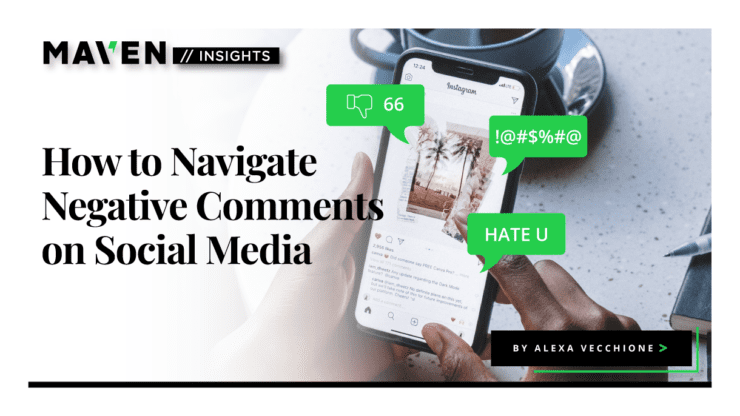Social media is one of the best ways to connect with your biggest fans… and your enemies. Negative feedback on social media is inevitable, especially for consumer-facing brands that seek engagement from specific audiences. While social media managers do their best to avoid negative commentary, it’s important to be prepared.
Here are tips to deal with negative feedback on social media while remaining true to your organizational values.
Develop a social media policy
A social media policy is essential to your overall strategy, both internal and external. Internally, a thorough plan outlining your go-to response protocols and potential crises is important to ensure your organization is aligned on how to best communicate with your audience. Externally, a policy should be shared in the “About” section of your accounts to make sure your audience knows your guidelines. This could include deletion of comments that include derogatory, racist or sexist language, or pointing people in the right direction to submit complaints or feedback. Clearly outlining your policy and the consequences ensures transparency from the start.
To respond or not to respond…
Whether you decide to respond to a negative comment or not, it’s important that you act fast. Social media is an instant form of communication, which means followers anticipate feedback right away. Slow response to a follower, especially if they voice a valid complaint or concern that is timely, is not a good look. It could even portray that you don’t care about your followers and come back to bite you later. Make sure you have notifications set up on social media to ensure you don’t miss any comments or messages. From there, refer to your social media policy for the best way to react.
That being said, not every comment needs to be responded to. There will always be trolls and people that don’t agree with you. Do your due diligence to investigate any claim made through social media comments, no matter how outlandish. If you find that the comment has no merit or is just trolls doing what they do best, follow your social media policy by either ignoring, deleting, or hiding the comment from your feed.
Invest in social listening
It’s important to ensure you’re taking the time to tap into social listening. Whether through Google Alerts or a social media monitoring tool like Meltwater, social listening is key to understanding how the public engages with your organization. It’s not only great to track comments specifically directed at you, but also feedback from people who are not tagging you on specific platforms. Social listening can also help mitigate the spread of misinformation.
Sadly, no one is safe from negative comments and trolls. That’s why an effective plan to handle negative feedback is key for the success of your organization and public image. At the end of the day, it’s important to remember your core values and thoughtfully communicate that in everything you do. Stay true to who you are and the trolls won’t stand a chance.
Thank you for reading our Insight on navigating negative social media feedback. Check out “Should Organizations Take a Stand on Issues That are Unrelated to Their Business?” and “How to Navigate Social Media During a Crisis” for more tips on how to authentically communicate with your audience.
Posted In Digital Strategy & Social Media
